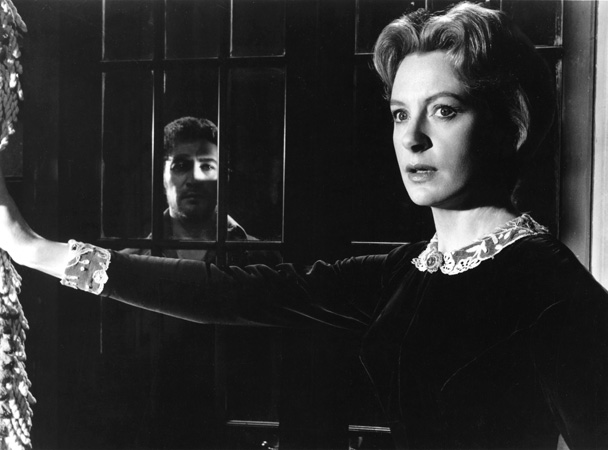
Part of what makes the excellent 1961 film ‘The Innocents’ different is the main character, the governess, Miss Giddens (played by Deborah Kerr), is thrust into a parental role suddenly. We see her at the beginning in an interview with the children’s uncle, a handsome playboy (played by Michael Redgrave, Vanessa’s father) who tells her he spends much of his time traveling and the rest in his home in London. When he offers her the job at his country estate, he takes her hand (a bold move for the Victorian era, when the film takes place) and asks if she is ready to take full responsibility for the children, because he doesn’t want to be disturbed during his adventures in London and abroad.

Though Plaza gives a committed physical performance, clearly having a ball in monster make-up, it’s really all she’s given to do. She isn’t even given much room to be funny in the supposed comedy. It’s as if Plaza has been cast in a feature length sketch-show, playing all manner of stereotypical “girlfriends from hell.” I imagine it on ‘Saturday Night Live’: first a short musical theme, “The Girlfriend from Hell,” then Plaza making a snarky comment to her boyfriend and vomiting pea soup all over him.

Halloween is upon us, so it’s time to contemplate the prolific theme of demon/spirit possession in film and on TV. Why is this such a prevalent theme? In many ways, possession explains evil as something separate from ourselves, something that infects us, which dichotomizes good and evil.

We thought it might be a fun note to end the year on, with the exploration of films like Harry Potter and Matilda, while also taking a closer, more serious look at portrayals of adolescence and girlhood in films and TV. Some questions to think about include, what are Hollywood’s expectations of girls and teenage girls in films and TV? And how do those expectations feed into the public’s acceptance of a teenage girl’s sexuality, for instance. Further, how might a girl character impact a young girl who’s viewing her on screen?
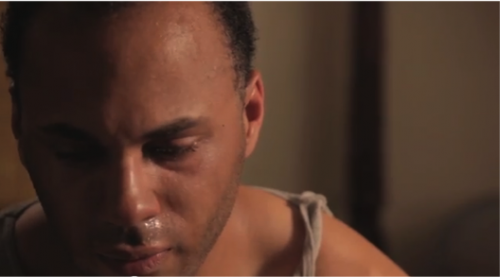
When I was asked, “Who are you as a female filmmaker?” I immediately made a mental note. I’m a black, female filmmaker. I was reminded of the following quote from Gloria Anzaldúa: “A woman-of-color who writes poetry or paints or dances or makes movies knows that there is no escape from race or gender when she is writing or painting. She can’t take off her color or sex and leave them at the door of her study or studio. Nor can she leave behind her history. Art is about identity, among other things, and her creativity is political.”
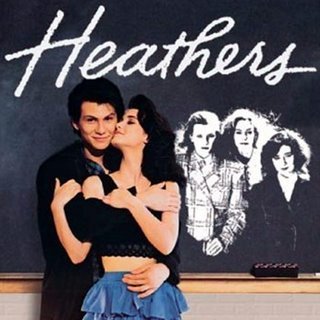
Indeed, the social structure of Westerburg High School is unsettling to say the least. Teens there would rather commit actual suicide than “social suicide.” Their alienation from both reality and ethical values is mirrored not only in J.D., Veronica and the Heathers, but also in the rest of the students. Peer pressure and the dream of popularity result in the “Westerburg suicides,” causing a downright suicide craze. Their supposed actions gave the popular kids depth and humanity and made them more popular than ever. When an unpopular girl attempts to kill herself, the new Heather in charge asserts, “Just another case of a geek trying to imitate the popular people of the school and failing miserably.”
# 50/50 5 Broken Cameras 500 Days of Summer 45 Years The 40-Year-Old Virgin 4 Months 3 Weeks and 2 Days 9 to 5 1971 101 Dalmations 127 Hours 10 Days in a Madhouse 10,000 km 3 1/2 Minutes, Ten Bullets 300: Rise of an Empire 12 Years a Slave 28 Days Later A Abuse … Continue reading “Film Directory”
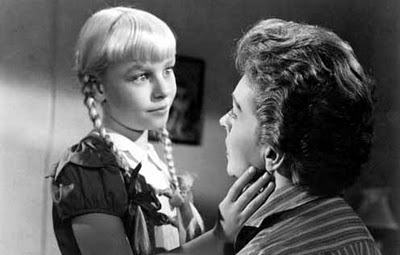
Horror films have a long-standing tradition of commenting on the social fears and anxieties of their time. Another universally recognized truth of horror is that scary children are terrifying–especially little girls. While an analysis of “creepy children” in horror films usually proclaims that they are providing commentary on a loss of innocence, and it would … Continue reading “The Terror of Little Girls: Social Anxiety About Women in Horrifying Girlhood”
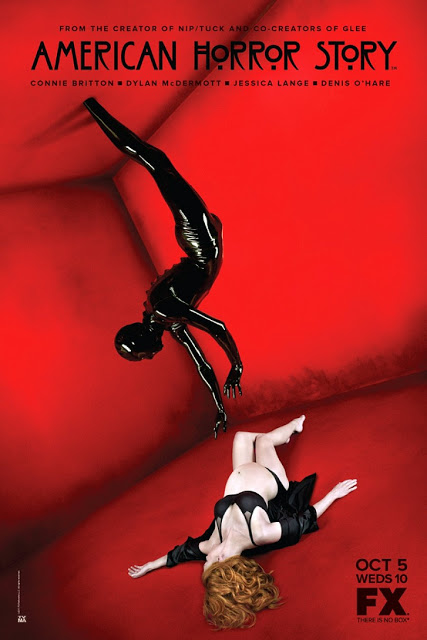
Warning: if you have not watched all of American Horror Story Season 1, there are massive spoilers ahead! American Horror Story co-creators Ryan Murphy and Brad Falchuk wanted to create a TV series that truly scared people. And they’ve definitely succeeded in their goal. But why the hell are they so afraid of abortion and … Continue reading “Reproduction & Abortion Week: ‘American Horror Story’ Demonizes Abortion and Suffers from the Mystical Pregnancy Trope”

Some scary-looking pumpkins. Confession: I love horror films. Sometimes I endlessly scroll through Netflix in search of the film that will most scare the shit out of me. Of course, many horror films subject their women characters to endless torture, brutal deaths (usually as punishment for engaging in sexual relationships with men), and gratuitous nudity … Continue reading “Call for Writers: Women in Horror Films”
This past Monday, Total Film published its list of the 100 Greatest Female Characters. As everyone knows, these Best Ever lists tend to have the pretty obvious problem of not being able to include everyone and, therefore, not being able to please everyone. But we here at Bitch Flicks found this particular list more problematic … Continue reading “Seriously? These Are the 100 Greatest Female Characters?”
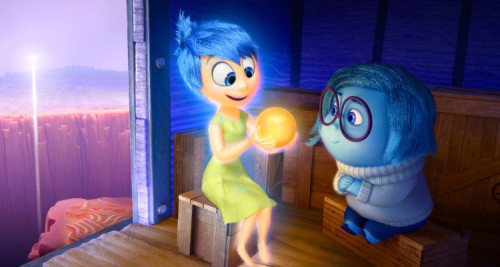
As for ‘Inside Out,’ it gives us not one female protagonist, but three – Riley, Joy, and Sadness – and NONE of them are princesses! And, minor criticisms aside, the film is a true joy to watch – and, like deeply felt joy – it has its moments of hilarity, of reflection, of nostalgia, and, yes, of sadness too.









